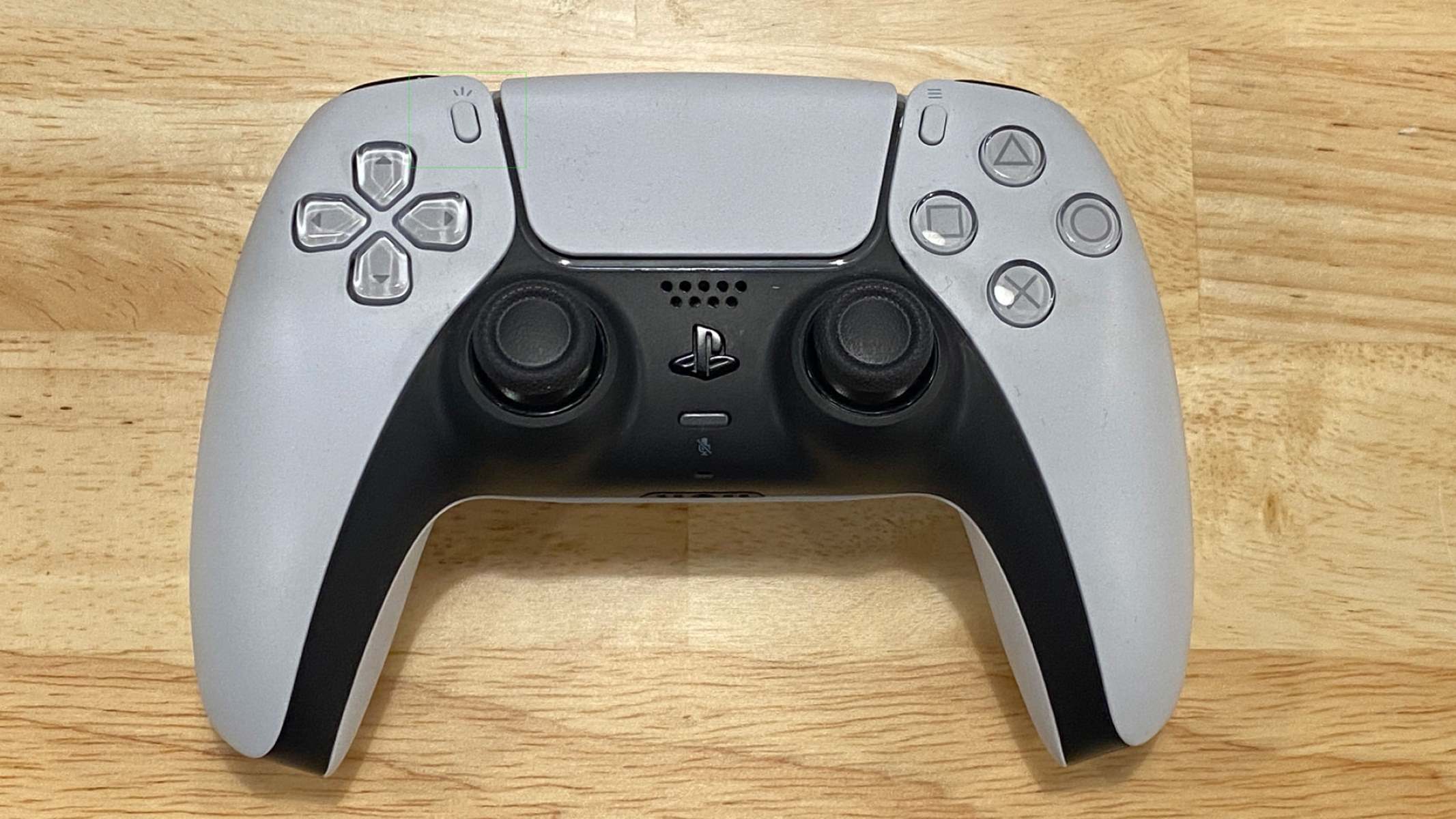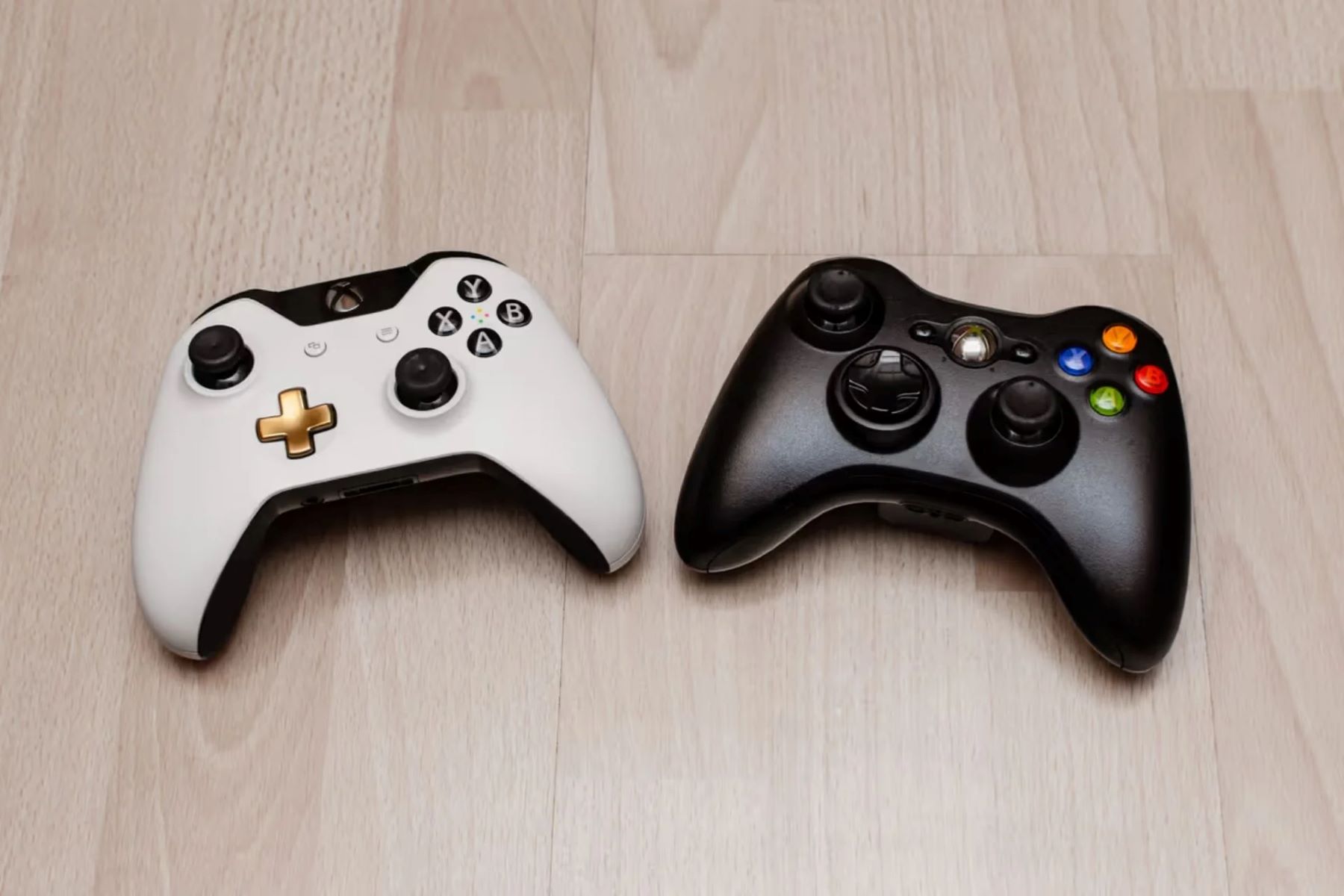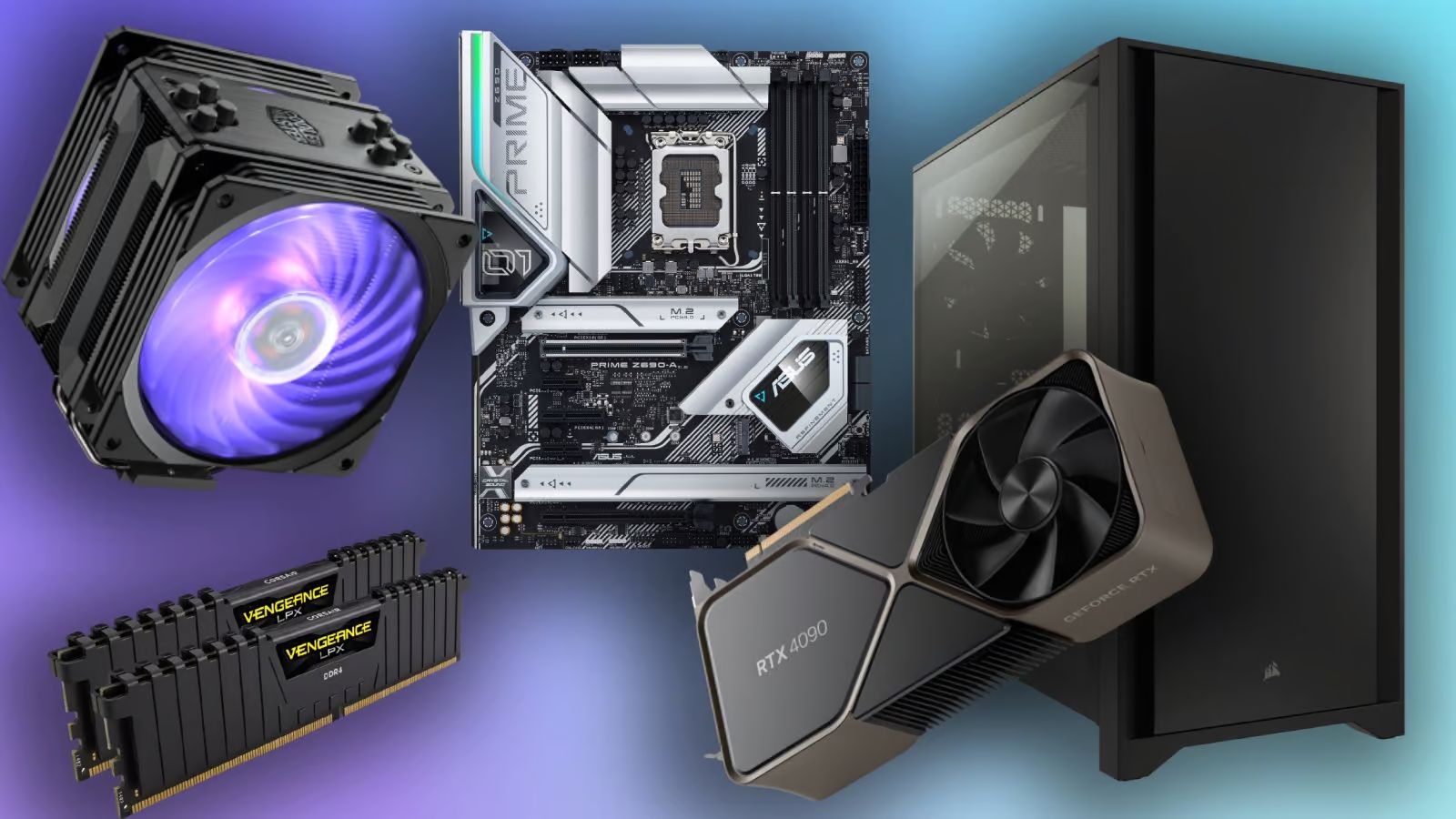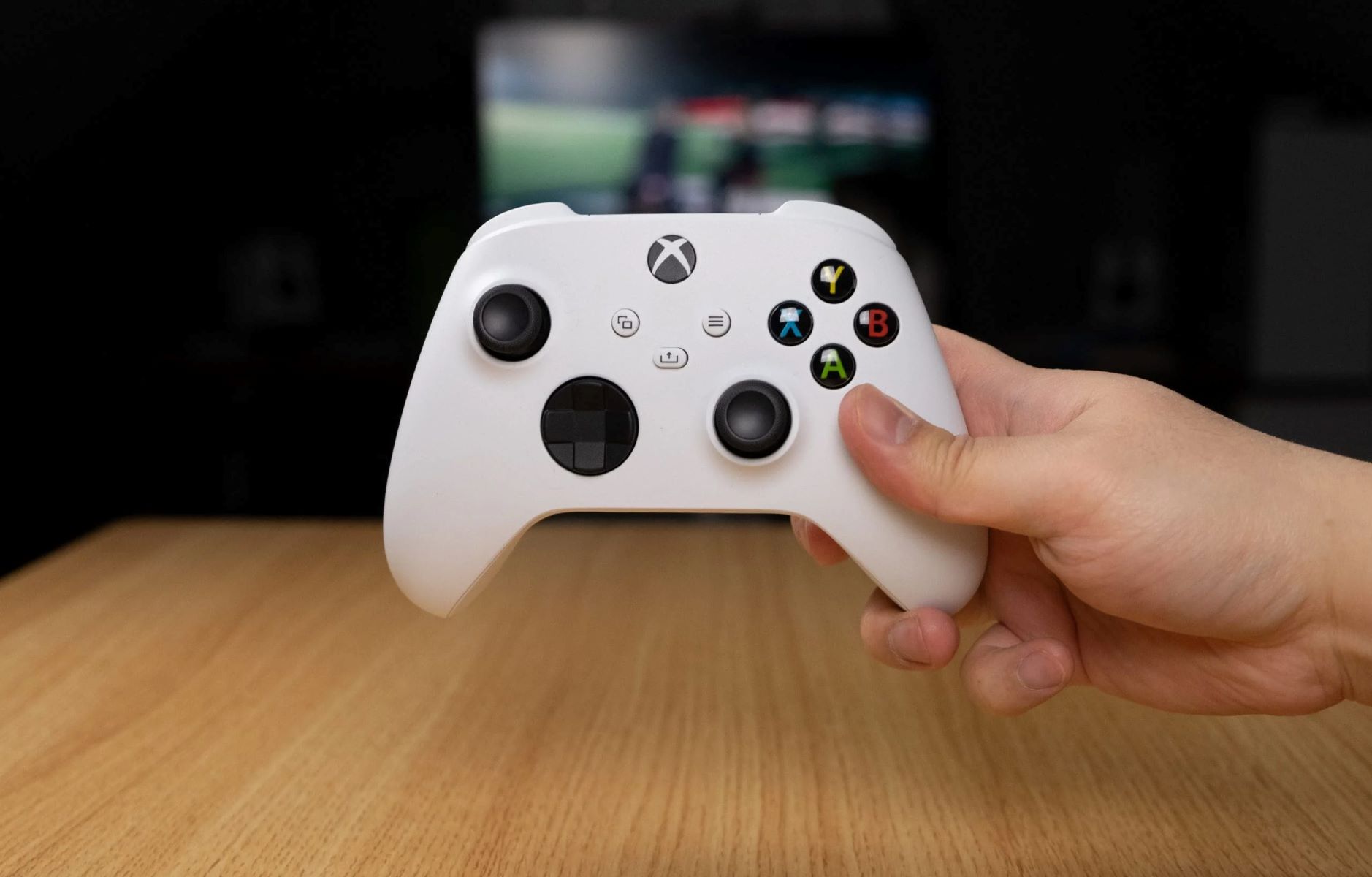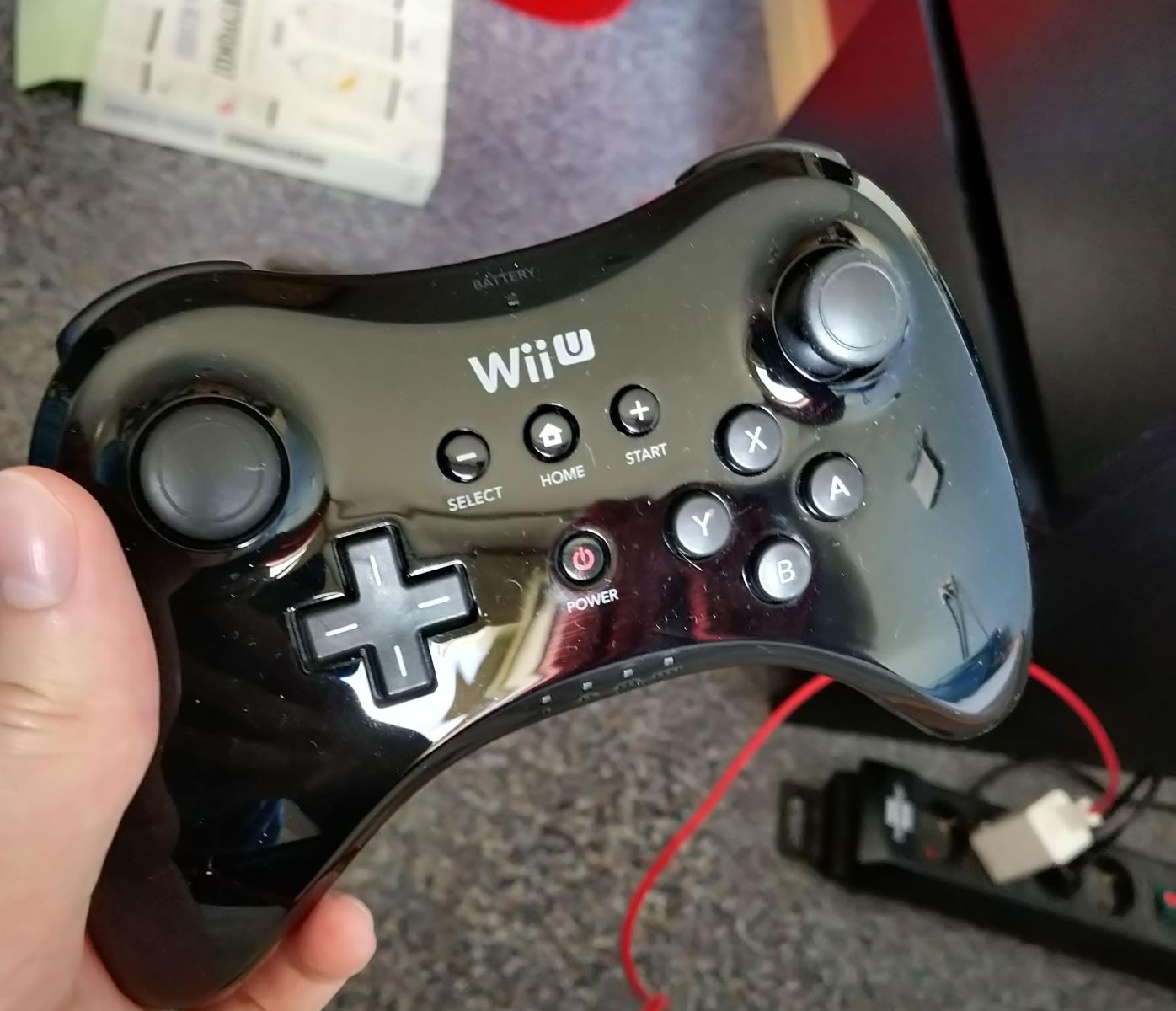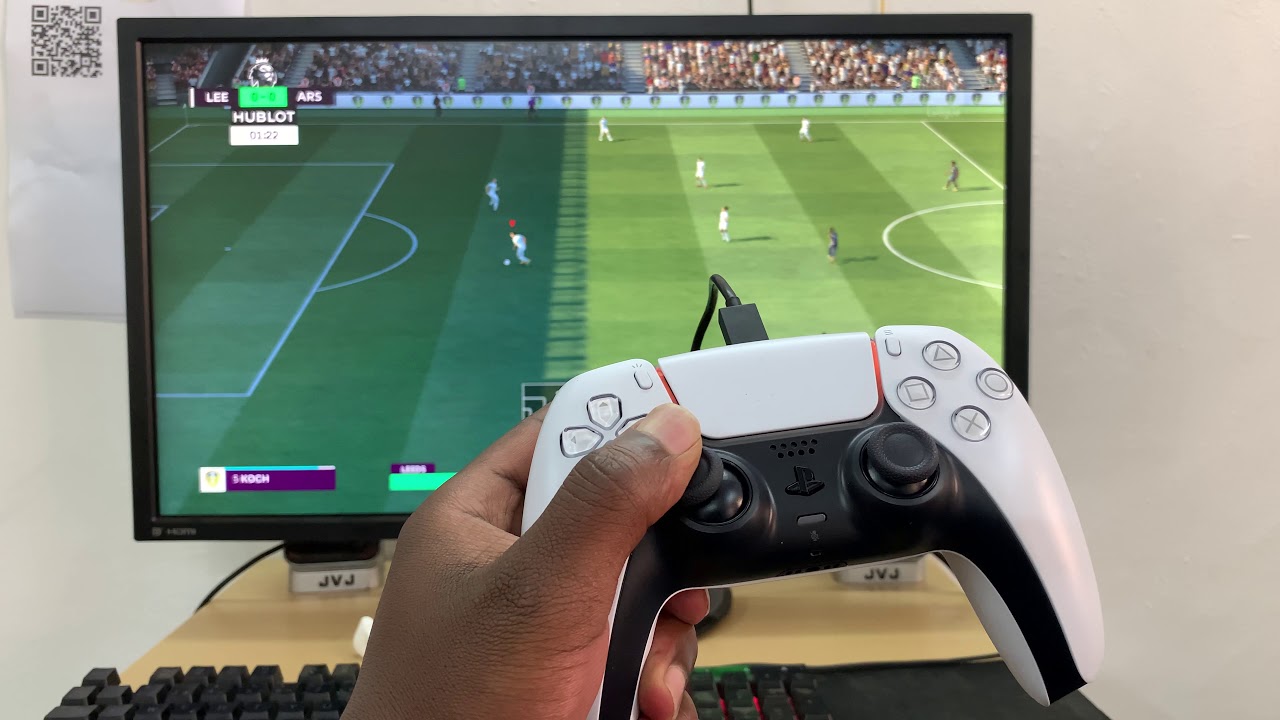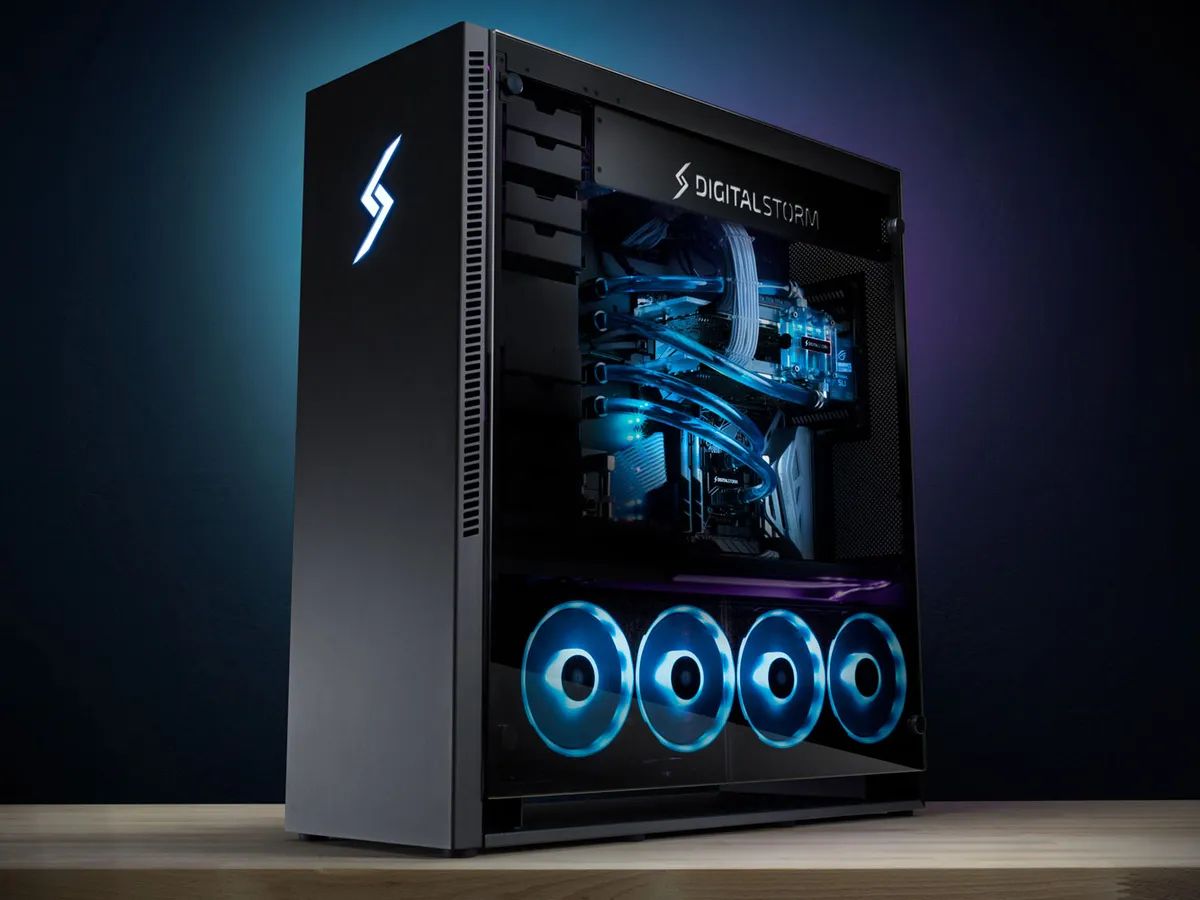Introduction
When it comes to building your own gaming PC, there are several essential components that you need to consider. Each component plays a crucial role in ensuring smooth performance and an immersive gaming experience. From a powerful graphics card to a high-performance processor, these elements work in harmony to deliver stunning visuals and seamless gameplay.
Whether you’re a casual gamer or a hardcore enthusiast, investing in the right components is vital to create a gaming setup that can handle the latest titles with ease. In this article, we will explore the key components that you need for a gaming PC and discuss their importance in detail.
Having a powerful graphics card is perhaps the most essential element when it comes to gaming. The graphics card is responsible for rendering the stunning visuals you see on-screen, ensuring smooth frame rates and realistic effects. Look for a graphics card with a dedicated GPU and sufficient video memory to handle the demands of the latest games.
The processor, often referred to as the CPU, is the brain of your gaming PC. It determines how fast your computer can process data and instructions, which directly impacts the performance of your games. Aim for a processor with multiple cores and a high clock speed to ensure smooth gameplay and quick multitasking.
Memory, also known as RAM, is another crucial component for a gaming PC. It acts as temporary storage for data that is actively being used by your games and applications. Having ample RAM will speed up loading times, prevent lag, and allow for seamless multitasking while gaming.
Your storage solution plays a vital role in storing your games, applications, and operating system. Solid State Drives (SSDs) are a popular choice due to their lightning-fast read and write speeds, reducing loading times significantly. You can also consider a traditional Hard Disk Drive (HDD) for storing larger files and games that do not require fast loading times.
The power supply is often an overlooked component, but it is essential for a stable and reliable gaming PC. Make sure to choose a power supply that can handle the power requirements of your components and has sufficient power connectors.
The motherboard serves as the backbone of your gaming PC, connecting all the components together. Look for a motherboard with sufficient expansion slots, USB ports, and support for the latest technology to future-proof your system.
To keep your gaming PC running smoothly, you need an efficient cooling system. Consider investing in a CPU cooler and case fans to maintain optimal temperatures and prevent overheating. This will help prolong the lifespan of your components and ensure reliable performance.
An operating system, such as Windows or macOS, is essential for running your games and applications. Make sure to choose a compatible and up-to-date operating system that can support the latest games and software.
The monitor is your window into the gaming world, so it’s crucial to choose one that delivers vibrant colors, fast response times, and high refresh rates. Consider factors like screen size, resolution, and panel technology to find a monitor that suits your gaming needs.
Having a gaming-specific keyboard and mouse can enhance your gaming experience. Look for features like mechanical switches, customizable lighting, and programmable buttons to improve your gaming performance and comfort.
Lastly, a high-quality sound system can elevate your gaming experience with immersive audio. Consider investing in a headset or a set of speakers that deliver clear and realistic sound, allowing you to fully immerse yourself in the game.
Additionally, a reliable internet connection is vital for online gaming. Make sure you have a stable and high-speed internet connection to minimize lag and optimize multiplayer experiences.
By carefully selecting and assembling the right components, you can create a gaming PC that meets your needs and provides an exceptional gaming experience. Keep in mind the compatibility of the components and do thorough research before making any purchases to ensure optimal performance and future expandability of your gaming rig.
Graphics Card
A graphics card is one of the most critical components of a gaming PC. It is responsible for rendering all the visuals you see on screen, including lifelike characters, detailed environments, and stunning special effects. A powerful graphics card can significantly enhance your gaming experience by ensuring smooth frame rates, high resolutions, and realistic graphics.
The performance of a graphics card is primarily determined by its GPU (Graphics Processing Unit) and video memory. The GPU is responsible for processing all the graphical calculations required for gaming, while the video memory stores the data and textures needed for rendering the visuals. When choosing a graphics card, look for a model with a high-performance GPU and ample video memory to handle the demands of modern games.
There are two major manufacturers of graphics cards: NVIDIA and AMD. Both offer a range of options catering to different budgets and performance needs. NVIDIA’s GeForce series and AMD’s Radeon series are widely used and acclaimed for their gaming prowess. Research and compare different models based on their performance benchmarks, power requirements, and compatibility with your other components.
Another factor to consider is the cooling system of the graphics card. Due to the high power consumption and intensive processing, graphics cards can generate a significant amount of heat. Look for models with efficient cooling solutions such as multiple fans or liquid cooling systems. A well-cooled graphics card will not only ensure optimal performance but also increase its longevity.
When it comes to connectivity, the graphics card should have the necessary video outputs to connect to your monitor or display. Common options include HDMI, DisplayPort, and DVI. Make sure to check the compatibility of your monitor and graphics card to avoid any issues with resolution and refresh rate.
It’s worth noting that the performance of a graphics card can be further enhanced through overclocking. Overclocking involves increasing the clock speeds and voltages of the GPU to gain additional performance. However, overclocking should be done cautiously, as it may void your warranty and can potentially cause stability issues if not done properly. If you’re interested in overclocking, ensure that your graphics card supports it and do thorough research on the process.
Investing in a high-quality graphics card is essential for a smooth and visually stunning gaming experience. It allows you to play the latest games at high resolutions and settings, providing a level of immersion that enhances your gaming enjoyment. Take the time to research and compare different options, considering factors such as price, performance, and compatibility, to find the perfect graphics card for your gaming PC.
Processor
The processor, often referred to as the CPU (Central Processing Unit), is the brain of your gaming PC. It is responsible for executing instructions and processing data, making it a crucial component for gaming performance. The processor’s speed and capabilities directly impact the overall speed and responsiveness of your gaming PC.
When it comes to gaming, a processor with multiple cores is highly recommended. Games are becoming increasingly multi-threaded, meaning they can take advantage of multiple CPU cores to distribute the workload and improve performance. Look for processors with at least four cores, preferably with hyper-threading or multi-threading technology, which allows each core to handle two threads simultaneously.
The clock speed of the processor, measured in GHz (gigahertz), determines how many instructions it can execute per second. A higher clock speed indicates faster performance. However, keep in mind that clock speed is not the only factor to consider when judging a processor’s performance. The number of cores, cache size, and architecture also play significant roles.
Intel and AMD are the two primary manufacturers of processors for gaming PCs. Intel processors are known for their strong single-core performance, making them ideal for gaming. On the other hand, AMD processors often offer better value for money and are more adept at multitasking and multi-threaded applications.
When choosing a processor, it’s important to consider its compatibility with your motherboard. Ensure that the processor fits the socket type and is supported by the motherboard’s chipset. Checking online compatibility guides or consulting with a knowledgeable retailer can help you make the right choice.
Overclocking is a popular practice among gamers who want to squeeze more performance out of their processors. Overclocking involves increasing the clock speed of the processor beyond its default setting. Not all processors are designed for overclocking, so if you have an interest in pushing your processor to its limits, make sure to choose an unlocked processor that supports overclocking.
Cooling is a critical aspect to consider when choosing a processor. The high processing power of modern CPUs generates significant heat, which can impact performance or even cause damage if not adequately managed. Invest in a reliable CPU cooler, whether it be an air cooler or liquid cooling solution, to keep temperatures in check and ensure optimal performance and longevity.
Ultimately, the right processor for your gaming PC depends on your budget and performance requirements. Consider factors such as the number of cores, clock speed, compatibility, and brand reputation when making your decision. By choosing a powerful and compatible processor, you’ll be able to enjoy smooth and responsive gaming experiences.
Memory (RAM)
Memory, also known as RAM (Random Access Memory), is a crucial component of a gaming PC. It acts as temporary storage for data that the computer is actively using, including your games, applications, and operating system. Having sufficient RAM is essential for smooth and efficient multitasking, quick loading times, and overall system performance.
When it comes to gaming, having enough RAM is crucial to ensure that your games can run smoothly without any lag or stuttering. The amount of RAM you need depends on the games you play and the tasks you perform while gaming. In general, we recommend a minimum of 8GB of RAM for gaming, but if you frequently play graphics-intensive games or use resource-demanding applications alongside gaming, consider opting for 16GB or even 32GB of RAM.
RAM speed, measured in MHz (megahertz), is another important consideration. Higher RAM speed can lead to better performance, particularly in tasks that heavily rely on memory bandwidth, such as rendering complex graphics or loading large game files. However, it’s worth noting that the speed of the RAM should be compatible with your motherboard and its supported RAM speeds.
There are different types of RAM available, with DDR4 being the most common and recommended choice for gaming PCs. DDR4 RAM offers improved speed, efficiency, and overall performance compared to its predecessor, DDR3. Make sure to check the compatibility of your motherboard with the specific RAM type you plan to purchase.
RAM capacity and speed are crucial, but it’s also essential to consider other factors such as latency timings and dual-channel or quad-channel memory configurations. Lower latency timings can lead to faster data access, resulting in improved performance. Additionally, using dual-channel or quad-channel memory configurations can provide a slight boost in memory bandwidth.
Upgrading or adding more RAM to your gaming PC is relatively easy. Most motherboards have multiple RAM slots, allowing you to add additional RAM modules. However, it’s important to ensure that the new RAM modules are compatible with your existing ones in terms of speed, capacity, and timing to avoid any compatibility issues.
It’s worth noting that while having more RAM is beneficial, there is a limit to how much your system can utilize effectively. The operating system and applications also consume a certain amount of RAM, so having excessive amounts of RAM beyond what your system can efficiently utilize may not provide significant improvements.
Overall, having sufficient and compatible RAM is essential for optimal gaming performance. It allows for smoother gameplay, faster loading times, and improved multitasking capabilities. Consider your gaming needs, budget, and the compatibility of your motherboard when choosing the right RAM for your gaming PC.
Storage
When it comes to gaming, having the right storage solution is crucial for storing your games, applications, and operating system. The two main types of storage options commonly used in gaming PCs are Solid State Drives (SSDs) and Hard Disk Drives (HDDs).
SSDs have become increasingly popular for gaming due to their lightning-fast read and write speeds. They offer significantly faster loading times compared to traditional HDDs, reducing the time you have to wait for games to start or levels to load. SSDs also provide a more responsive overall system experience, allowing you to access files and launch applications quickly.
When choosing an SSD, consider its capacity in relation to your gaming needs. SSDs range in capacity from 256GB to several terabytes. It’s advisable to select an SSD with a capacity that accommodates your operating system, frequently played games, and other important applications. If your budget allows, investing in a larger capacity SSD will provide ample room for a broader gaming library.
On the other hand, HDDs offer a more cost-effective storage solution for larger files and games that do not require fast loading times. HDDs have higher storage capacities compared to SSDs, making them ideal for storing large media files, such as videos and photos. If you have a vast collection of games or prefer to prioritize storage space over speed, an HDD can be a suitable option.
Many users opt for a combination of SSD and HDD storage in their gaming PCs. This setup involves using an SSD as the primary drive for the operating system and frequently played games, while using an HDD as secondary storage for larger files and games. This provides a balance between speed and storage capacity, allowing for fast gaming performance while still having ample space for other files.
It’s important to note that SSDs have a limited number of write cycles, known as endurance. Although modern SSDs have significantly improved in this aspect, it’s still worth considering the endurance rating of the SSD you choose, especially if you plan on performing frequent read and write operations or storing large amounts of data.
When installing both SSDs and HDDs in your gaming PC, ensure that your motherboard has the necessary SATA or M.2 slots to accommodate the drives. Additionally, make sure to connect the SSD to a SATA III port for maximum speed and performance.
If you choose to use an SSD or HDD, it’s always recommended to regularly back up your important files, including your game saves. This ensures that in the event of a hardware failure or data loss, you can easily restore your games and resume your progress without losing hours of gameplay.
Whether you opt for an SSD, HDD, or a combination of both, it’s crucial to have sufficient storage capacity and speed to accommodate your gaming needs. Choose the storage solution that suits your budget, desired performance, and storage requirements, and enjoy quick access to your favorite games and files.
Power Supply
The power supply is often an overlooked component when building a gaming PC, yet it plays a critical role in providing the necessary power to all the components of your system. A reliable and efficient power supply is essential to ensure the stable and optimal performance of your gaming PC.
When choosing a power supply, consider both the wattage and efficiency rating. The wattage determines the maximum amount of power the power supply can deliver to your system. It’s crucial to choose a power supply with sufficient wattage to support all the components in your PC, including the graphics card, processor, and other peripherals. Calculating the total power requirements of your system can help you determine the appropriate wattage for your power supply.
Efficiency is another important factor when selecting a power supply. An efficient power supply converts AC power from your wall outlet into DC power more efficiently, reducing energy waste and operating costs. Look for power supplies with an 80 Plus certification, which indicates high energy efficiency. Higher certification levels, such as 80 Plus Bronze, Silver, Gold, and Platinum, offer better efficiency and can save you money in the long run.
Modular or non-modular power supplies are also worth considering. Modular power supplies allow you to detach and connect cables as needed, resulting in a cleaner and more organized internal setup. However, non-modular power supplies are generally more cost-effective. Choose the option that best suits your cable management preferences, budget, and overall system aesthetics.
Ensure that the power supply you choose has the necessary connectors to support all your components. Pay attention to the number of PCIe connectors, SATA connectors, and CPU power connectors your system requires. Having insufficient connectors can limit your options for expansion or may require additional adapters.
Consider the brand and reputation of the power supply manufacturer. Opt for reputable brands known for producing high-quality, reliable power supplies. Reading reviews and researching user experiences can help you make an informed decision and avoid potential issues or failures in the future.
Noise level is another factor to consider. Some power supplies tend to generate more noise under heavy load, which can be distracting for gamers. Look for power supplies with quiet fan designs or fanless options if noise is a concern for you.
While it may be tempting to skimp on the power supply to save costs, it’s crucial to invest in a high-quality unit that can reliably deliver the necessary power to your gaming PC. A cheap and low-quality power supply can lead to unstable voltages, system crashes, or even hardware damage.
Lastly, always prioritize safety when it comes to your power supply. Look for power supplies with overvoltage protection, undervoltage protection, overcurrent protection, and short circuit protection. These safety features help safeguard your components and prevent damage in the event of voltage fluctuations or electrical issues.
By choosing a reliable and efficient power supply, you can ensure the stable and optimal performance of your gaming PC without risking damage to your components. Take into account the wattage, efficiency rating, brand reputation, noise level, and safety features to find the right power supply for your gaming setup.
Motherboard
The motherboard is the foundation of your gaming PC, connecting and facilitating communication between all the components of your system. It is essential to choose a motherboard that meets your requirements in terms of compatibility, expansion options, and future-proofing.
When selecting a motherboard, consider the socket type that is compatible with your chosen processor. Different processors require specific socket types, so ensure that the motherboard supports the socket type of your processor. Additionally, check the chipset compatibility to ensure proper functionality and support for the features you require.
The form factor of the motherboard is another consideration. ATX, Micro-ATX, and Mini-ITX are the most common form factors for gaming PCs. ATX offers more expansion slots and features, making it suitable for high-performance systems, while Micro-ATX and Mini-ITX are more compact options that can fit into smaller cases. Choose a form factor that suits your needs in terms of space requirements and future upgrade possibilities.
Expansion slots and ports are important to consider when selecting a motherboard. Look for sufficient PCIe slots to accommodate your graphics card and other expansion cards, such as Wi-Fi adapters or sound cards. USB ports, audio ports, and M.2 slots are also worth considering depending on your needs. Additionally, make sure the motherboard offers the necessary connections for your storage drives, such as SATA ports.
The VRM (Voltage Regulator Module) is responsible for supplying power to your processor and ensuring stable performance. Consider the quality and design of the VRM when choosing a motherboard, especially if you plan on overclocking your processor. A well-designed VRM with robust power delivery can contribute to better performance and stability.
Memory support is another vital aspect of a motherboard. Ensure that the motherboard supports the type, speed, and capacity of RAM modules you plan to use. Additionally, some motherboards offer advanced memory overclocking features, which can be beneficial if you are interested in maximizing your RAM’s performance.
Consider the brand and reputation of the motherboard manufacturer. Opt for reputable brands known for their quality and reliability. Reading reviews and user experiences can provide valuable insights into the performance and longevity of the motherboard.
Connectivity options are also worth considering. Look for motherboards with built-in networking capabilities, such as Ethernet ports or built-in Wi-Fi. Additionally, onboard audio solutions and support for surround sound can enhance your gaming and multimedia experiences.
Finally, consider the overall features and aesthetics of the motherboard. Some motherboards offer additional features such as RGB lighting, reinforced PCIe slots, or onboard buttons for easy debugging or overclocking. Choose a motherboard that aligns with your desired aesthetic and offers the features that enhance your gaming experience.
By selecting a suitable motherboard, you can build a gaming PC that accommodates your chosen components and offers the necessary features and expansion options for future upgrades. Consider factors such as compatibility, expansion slots, form factor, VRM quality, memory support, brand reputation, and overall features to create a reliable and high-performing gaming platform.
Cooling System
An efficient cooling system is critical for maintaining optimal temperatures and ensuring the longevity and performance of your gaming PC components. Excessive heat can lead to thermal throttling, reduced performance, and potentially hardware failure. Therefore, it’s crucial to choose the right cooling solution to keep your system running cool and stable.
When it comes to cooling your gaming PC, there are multiple options to consider. The two primary cooling methods are air cooling and liquid cooling.
Air cooling is the most common and cost-effective cooling solution. It involves using CPU coolers and case fans to circulate air and dissipate heat from the components. There are various types of CPU coolers, including air coolers with heatsinks and fans, as well as all-in-one liquid coolers that use a liquid cooling loop and a radiator. The choice depends on factors such as CPU compatibility, budget, and cooling performance requirements.
Liquid cooling, also known as water cooling, offers better heat dissipation capabilities compared to air cooling. It involves circulating liquid coolant through the components, which absorbs heat and is then expelled through a radiator. Liquid coolers typically provide more efficient cooling, lower noise levels, and the ability to overclock your CPU or GPU to higher frequencies. They are especially beneficial for high-performance gaming PCs with overclocked components.
When choosing a cooling solution, consider the cooling requirements of your specific components, particularly your CPU and graphics card. These are the primary sources of heat generation in your system. Ensure that the cooling solution you choose is compatible with your CPU socket type and provides efficient cooling for your specific components.
Proper case airflow is also essential for effective cooling. Ensure that your case has adequate fan mounts and consider adding additional case fans if necessary to provide sufficient airflow. Ideally, you should have intake fans at the front of the case and exhaust fans at the rear and top to create a balanced airflow throughout the system.
Noise levels are another consideration when selecting a cooling system. Some cooling solutions, especially high-performance air coolers or liquid coolers with multiple fans, can generate more noise. If noise is a concern for you, look for cooling solutions that prioritize quieter operation, such as fans with lower noise levels or liquid coolers with larger radiators and slower fan speeds.
Regular cleaning and maintenance of your cooling system are essential to prevent dust buildup, which can obstruct airflow and reduce cooling efficiency. Clean your fans, heatsinks, and radiators regularly using compressed air or an air blower to remove dust and debris. Additionally, ensure that your CPU and GPU thermal paste is properly applied and replace it if necessary to maintain optimal heat transfer.
Overall, choosing an efficient cooling system is crucial for maintaining the performance and longevity of your gaming PC. Consider factors such as cooling performance, compatibility, noise levels, and maintenance requirements when selecting your cooling solution. By keeping your gaming PC cool and properly cooled, you can enjoy stable performance and extend the lifespan of your components.
Operating System
An operating system (OS) is an integral component of any gaming PC as it acts as the bridge between your hardware and software. It provides the necessary foundations to run your games and applications smoothly. When choosing an operating system for your gaming setup, there are a few key considerations to keep in mind.
Windows is the most popular operating system for gaming due to its widespread compatibility with game titles and extensive driver support. Windows 10 is the latest version and offers excellent performance, security, and gaming features. It is compatible with a wide range of hardware and software, making it an ideal choice for most gamers.
For those who prefer macOS, it is worth noting that it has a limited library of games compared to Windows. However, macOS offers a streamlined and user-friendly interface, integrated software and hardware, and robust security features, making it an attractive choice for Mac enthusiasts.
When choosing an operating system, consider the compatibility with your hardware components. Ensure that the OS supports your processor architecture, graphics card, and other peripherals. Additionally, check for driver availability from the hardware manufacturers to ensure smooth and optimized performance.
Another crucial factor is the software and game compatibility. While Windows boasts the widest range of game compatibility, some game developers also release versions for macOS or Linux. Be sure to check game system requirements and verify compatibility with your chosen operating system before making a decision.
Updates and support are vital considerations when choosing an operating system. Both Windows and macOS receive regular updates that provide bug fixes, security patches, and performance improvements. These updates help optimize your gaming experience and ensure the stability and security of your system. It’s essential to choose an operating system that is actively maintained and supported by the developers.
Gaming-related features, such as DirectX or Metal graphics APIs, are worth considering. DirectX is a collection of APIs developed by Microsoft and is widely used in Windows gaming. Similarly, Metal is Apple’s proprietary graphics API for macOS. These APIs allow game developers to optimize their games for specific operating systems, resulting in improved performance and visual quality.
Lastly, consider additional features and customization options offered by the operating system. Windows, for example, provides extensive customization options, such as desktop themes, virtual assistants like Cortana, and support for a wide range of third-party software. macOS, on the other hand, offers seamless integration with other Apple devices and services, such as AirDrop and iCloud.
Ultimately, the choice of operating system depends on your specific needs and preferences. Consider factors such as game compatibility, hardware compatibility, updates and support, gaming-related features, and customization options. By selecting the right operating system, you can ensure a smooth and enjoyable gaming experience on your PC.
Monitor
When it comes to gaming, the monitor plays a crucial role in delivering an immersive and visually stunning experience. It is the primary interface through which you interact with your games, making it essential to choose a monitor that meets your gaming preferences and requirements.
One of the key considerations when selecting a gaming monitor is the display technology. The most common display technologies used in gaming monitors are TN (Twisted Nematic), IPS (In-Plane Switching), and VA (Vertical Alignment) panels. Each has its advantages and disadvantages.
TN panels are known for their fast response times, making them ideal for competitive gaming. However, they may have limited color accuracy and narrower viewing angles compared to IPS or VA panels.
IPS panels offer wider viewing angles and superior color accuracy, making them suitable for gamers who prioritize image quality and visual immersion. However, they generally have slightly slower response times compared to TN panels, which may result in motion blur during fast-paced gaming.
VA panels provide deeper blacks and higher contrast ratios compared to TN and IPS panels. They generally have better color reproduction than TN panels but may exhibit slightly slower response times.
Another important consideration is the refresh rate of the monitor, which refers to the number of times the display updates per second. Higher refresh rates, such as 144Hz or 240Hz, provide smoother and more fluid motion, especially in fast-paced games. However, to take advantage of higher refresh rates, your gaming PC must be capable of delivering high frame rates.
Resolution is another significant factor to consider. Higher resolutions, such as 1440p (2K) or 2160p (4K), offer sharper and more detailed visuals. However, keep in mind that higher resolutions require more powerful hardware to achieve smooth performance, so ensure that your gaming PC can handle the demands of the chosen resolution.
Screen size is a matter of personal preference, but it’s important to strike a balance between immersion and practicality. Larger screens provide a more immersive experience but may require you to sit farther away from the monitor, which can affect your field of view. Consider factors such as desk space and viewing distance when choosing the optimal screen size for your gaming setup.
Response time is another crucial consideration. It refers to the time it takes for a pixel to change from one color to another. Lower response times, usually measured in milliseconds (ms), result in less motion blur and smoother visuals during fast-paced gaming. Aim for a monitor with a response time of 5ms or lower for optimal gaming performance.
Connectivity options are also important when choosing a gaming monitor. Ensure that the monitor has the necessary ports, such as HDMI or DisplayPort, to connect to your gaming PC and any other devices you plan to use, such as gaming consoles.
Additional features such as adaptive sync technologies (e.g., AMD FreeSync or NVIDIA G-Sync) can help eliminate screen tearing and provide a smoother gaming experience. Moreover, ergonomic features such as height adjustments, swivel, and tilt functions can enhance comfort during long gaming sessions.
Consider your budget, gaming preferences, and hardware capabilities when selecting a gaming monitor. Research user reviews and compare specifications to find the perfect balance between display technology, refresh rate, resolution, response time, screen size, and additional features. By choosing the right monitor, you can enjoy stunning visuals and enhance your gaming experience to the fullest.
Keyboard and Mouse
Choosing the right keyboard and mouse for your gaming setup is essential for comfortable and precise control during gameplay. These peripherals are your primary means of interaction with your games, making it crucial to select ones that suit your gaming preferences and playstyle.
When it comes to keyboards, there are various types and features to consider. Mechanical keyboards are popular among gamers due to their tactile feedback, responsiveness, and durability. They offer different types of mechanical switches, such as Cherry MX or Razer switches, each with a unique feel and sound. Consider factors such as switch type, actuation force, and noise level to find the perfect mechanical keyboard for you.
Membrane keyboards are a more affordable option, using a rubber dome or membrane beneath the keys. They are generally quieter but may lack the tactile and responsive feel of mechanical keyboards. Some membrane keyboards also feature RGB lighting and additional gaming-specific features.
Gaming keyboards often come with additional features to enhance your gaming experience. Features like programmable macros, dedicated multimedia keys, and customizable RGB lighting can improve productivity and immersion. Look for keyboards that offer the features you prioritize in your gaming sessions.
Similarly, the mouse is an essential component for precision and accuracy during gameplay. Gaming mice typically have high dpi (dots per inch) settings, allowing for precise cursor movement. Look for a mouse with adjustable dpi settings to find the sensitivity that works best for you.
Ergonomics is an important consideration when choosing a mouse. Look for a design that conforms to your hand comfortably and supports your grip style, be it palm grip, claw grip, or fingertip grip. Additionally, some gaming mice offer customizable weight systems, allowing you to adjust the weight to your preference.
Wireless or wired is another choice to consider. Wireless mice provide freedom of movement but may have a slight delay compared to wired mice. Wired mice, on the other hand, offer a more direct and responsive connection to your gaming PC.
Additional features to consider in a gaming mouse include programmable buttons, on-board memory for storing profiles, and customizable RGB lighting. These features can enhance your gaming performance, allowing you to customize your mouse to suit different games and playstyles.
Consider your budget, gaming preferences, and comfort when selecting a keyboard and mouse. Research user reviews and compare specifications to find the perfect combination that offers the features and ergonomics you desire. By choosing the right keyboard and mouse, you can achieve precise control, comfort, and an improved gaming experience.
Sound System
Having a high-quality sound system is essential for immersing yourself in the audio experience of your games. Clear and realistic sound can enhance gameplay and provide a more immersive and detailed gaming experience. When choosing a sound system for your gaming setup, consider the following factors:
Headsets are a popular choice among gamers as they offer a convenient all-in-one solution for audio and communication. Look for headsets with good sound quality, comfortable designs, and noise-canceling features to enhance your gaming experience. Additionally, consider features like surround sound or virtual 7.1 surround sound for improved spatial audio and directional awareness.
If you prefer a more immersive and room-filling audio experience, consider investing in a set of speakers. Look for speakers with good frequency range, accurate sound reproduction, and immersive audio technologies, such as Dolby Atmos or DTS:X. A 2.1 or 5.1 speaker setup can provide directional audio cues, while a 7.1 speaker setup offers even more precise positional audio.
Soundbars or sound bases are another option for those who want better audio without the complexity of multiple speakers. Soundbars provide a sleek and space-saving design while offering improved sound quality compared to built-in TV or monitor speakers. Look for soundbars with virtual surround sound or built-in subwoofers for enhanced bass response.
When choosing a sound system, consider the connectivity options available. Look for systems with multiple input options, such as optical, HDMI, or USB, to ensure compatibility with your gaming devices. If you plan on connecting your sound system to a PC, make sure the system supports your preferred connection method.
Sound system features, such as equalization settings or customizable sound profiles, can also enhance your gaming experience. These features allow you to adjust the audio to your preferences or optimize it for different types of games, providing a personalized audio experience.
Lastly, consider the overall audio quality and reviews of the sound system before making a purchase. Reading user reviews and professional evaluations can give you valuable insights into the sound quality, durability, and performance of the system.
Ultimately, the choice of sound system depends on your budget, space constraints, and desired audio experience. Whether you opt for a gaming headset, speakers, or a soundbar, having a high-quality sound system can elevate your gaming experience by immersing you in detailed and immersive audio.
Internet Connection
An internet connection is a vital component for online gaming, providing the necessary connectivity to play multiplayer games, download updates, and access online content. When it comes to gaming, a reliable and high-speed internet connection is crucial for a smooth and uninterrupted gaming experience.
The first consideration when choosing an internet connection is the type of service available in your area. Common options include cable, DSL, fiber optic, and satellite internet. Fiber optic and cable internet connections typically offer faster speeds and lower latency compared to DSL or satellite options.
Internet speed, measured in megabits per second (Mbps), is an important factor to consider. Higher speeds ensure faster download and upload times and reduce network lag. Look for an internet plan with speeds that meet the demands of your gaming and downloading habits. Online gaming generally requires a minimum download speed of at least 3 Mbps and an upload speed of at least 1 Mbps for smooth gameplay.
Latency, also known as ping, is another crucial consideration. It refers to the delay between when a data packet is sent from your device and when it is received and processed by the game server. Lower latency results in faster response times and reduces lag. Look for an internet provider with low latency to ensure an optimal gaming experience, especially for fast-paced online games.
Bandwidth, which refers to the amount of data that can be transmitted over your internet connection in a given time, is worth considering if you have multiple devices or users in your household. This ensures that your gaming experience isn’t affected by other devices or users consuming a significant amount of bandwidth.
When choosing an internet service provider (ISP), consider their reputation, reliability, and customer service. Research customer reviews and compare different ISPs in your area to ensure you receive the best possible service and support.
It’s important to note that a wired connection generally provides a more stable and reliable connection compared to wireless options. If possible, connect your gaming PC directly to your internet modem or router using an Ethernet cable for the best gaming performance. However, if you have to use a wireless connection, ensure that you have a strong and reliable Wi-Fi signal with minimal interference.
Lastly, ensure that your gaming PC or console is equipped with a network adapter that is capable of taking advantage of the speeds provided by your internet connection. Upgrading to a modern network adapter, such as a Gigabit Ethernet card or a dual-band Wi-Fi adapter, can help maximize your internet speeds.
Having a reliable and high-speed internet connection is crucial for online gaming. Consider factors such as internet speed, latency, bandwidth, ISP reputation, and wired or wireless connectivity when selecting your internet service. By ensuring a stable and fast internet connection, you can enjoy a lag-free and immersive online gaming experience.










